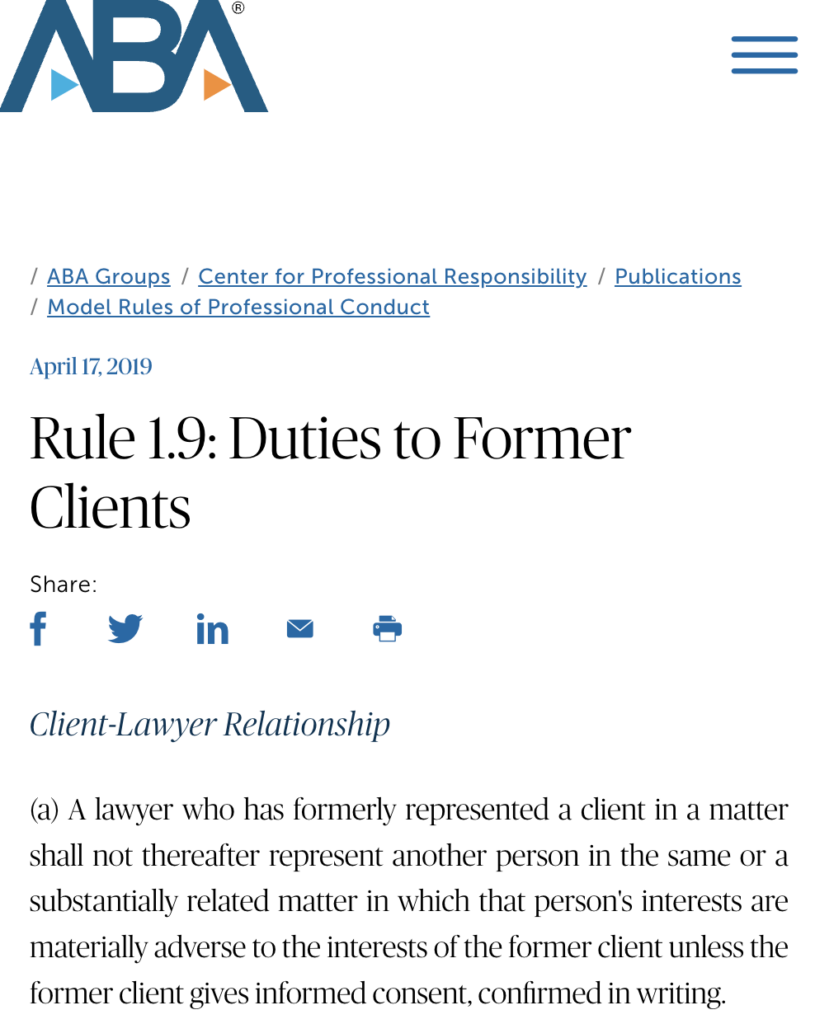Key Highlights
- Responding to negative reviews is crucial for maintaining a positive online reputation law firms.
- Negative feedback can influence potential clients’ decisions and affect the firm’s credibility.
- Ethical guidelines must be followed when responding to negative reviews to protect client confidentiality and maintain professionalism.
- Best practices for addressing negative reviews include crafting thoughtful and respectful replies, timing responses effectively, and using feedback to improve services.
- Strategies for mitigating the effects of negative feedback include proactive measures to prevent negative reviews and implementing client feedback for continuous improvement.
Introduction
In today’s digital age, online reviews play a significant role in shaping a law firm’s reputation. Just like customers of Amazon consider reviews before buying a product, potential law firm clients often rely on reviews to make decisions about which firm to hire. While positive feedback can boost a law firm’s credibility, negative reviews can have the opposite effect. It’s essential for law firms to know how to respond effectively to negative feedback in order to maintain a positive online reputation and attract potential clients.
Understanding the Impact of Negative Reviews on Law Firms
Negative reviews can have a significant impact on a law firm’s online reputation. They can erode client trust and deter potential clients from seeking the firm’s services. Potential clients often rely on the experiences of others when selecting a law firm, and negative reviews can influence their decision-making process. It is crucial for law firms to understand the direct effects of negative reviews on their reputation and client trust in order to effectively respond to them.
The direct effects on firm reputation and client trust
Negative reviews can directly impact a law firm’s reputation and client trust. When potential clients come across negative reviews, they may question the firm’s competence, professionalism, or ability to handle their case effectively. This can lead to a loss of potential clients and harm the firm’s overall reputation. Responding to negative reviews in a thoughtful and respectful manner can help rebuild trust and demonstrate the firm’s commitment to addressing client concerns.
How negative feedback influences potential clients’ decisions
Negative feedback can greatly influence potential clients’ decisions when choosing a law firm. Potential clients often rely on the experiences and opinions of others when making important decisions, and negative reviews can create doubt and uncertainty. They may question whether the firm can provide the level of service and expertise they need. It is important for law firms to recognize the impact of negative feedback and respond appropriately to address any concerns and reassure potential clients.
Ethical Guidelines for Responding to Negative Reviews
When responding to negative reviews, it is crucial for law firms to adhere to ethical guidelines. Protecting client confidentiality and maintaining professionalism are paramount. Law firms must be mindful of the information they disclose when responding to negative reviews and avoid revealing any private or embarrassing details about their clients. Responding in a manner that is thoughtful, respectful, and within the bounds of ethical guidelines is essential to maintain the trust and confidence of clients and the public.
Overview of relevant ethics rules for attorneys

Attorney ethics rules provide guidance on how to respond to negative reviews while maintaining client confidentiality and professionalism. Rules such as ABA Model Rule of Professional Conduct 1.9(c) and 1.6(a) prohibit lawyers from revealing information related to the representation of a former client without informed consent or a valid exception. It is important for attorneys to familiarize themselves with these rules and ensure that their responses to negative reviews comply with ethical guidelines. Attorneys have been reprimanded for responding to negative online reviews.
Balancing professionalism with assertiveness in responses
When responding to negative reviews, law firms should strive to strike a balance between professionalism and assertiveness. It is important to address the reviewer’s concerns in a respectful and professional manner while also asserting the firm’s position. Responding assertively can help correct any misconceptions or false information in the review and demonstrate the firm’s commitment to providing quality legal services. However, it is essential to maintain a professional tone and avoid engaging in arguments or personal attacks.
Best Practices for Addressing Negative Reviews
Addressing negative reviews requires a thoughtful approach and adherence to best practices. Craft a thoughtful and respectful reply that acknowledges the reviewer’s concerns and expresses a willingness to address any issues. Timing your response for maximum effectiveness is important to ensure that the reviewer feels heard and that potential clients see the firm’s commitment to resolving concerns. Engaging with feedback and using it to improve services shows a dedication to client satisfaction and continuous improvement.
Crafting a thoughtful and respectful reply
When crafting a response to a negative review, it is important to be thoughtful and respectful. Acknowledge the reviewer’s concerns and express empathy for their experience. Avoid becoming defensive or dismissive, as this can further escalate the situation. Instead, offer a sincere apology if appropriate and provide reassurance that the firm takes feedback seriously. It is important to address the reviewer’s concerns directly and offer a resolution if possible. By responding in a thoughtful and respectful manner, law firms can demonstrate their commitment to client satisfaction and maintaining a positive reputation.
Timing your response for maximum effectiveness
Timing is crucial when responding to negative reviews. Aim to respond in a timely manner to show that the firm values feedback and takes it seriously. However, it is important to take the time to carefully craft a thoughtful response rather than rushing to reply. By responding promptly, the firm can demonstrate its commitment to addressing client concerns and resolving issues. A timely response also allows potential clients to see how the firm handles feedback, which can positively influence their perception of the firm.
Engaging with feedback to improve services
Negative feedback can be an opportunity for law firms to improve their services. Engaging with feedback and using it to make meaningful changes can help enhance client satisfaction and prevent similar issues in the future. By listening to client concerns and taking proactive steps to address them, law firms can demonstrate their commitment to continuous improvement. This can lead to a more positive reputation and increased client satisfaction.

Strategies for Mitigating the Effects of Negative Feedback
Mitigating the effects of negative feedback requires proactive measures and a commitment to continuous improvement. By implementing strategies to prevent negative reviews, such as providing excellent client service and clear communication throughout the legal process, law firms can minimize the likelihood of negative feedback. Additionally, actively soliciting and implementing client feedback can help identify areas for improvement and demonstrate a commitment to client satisfaction and continuous growth.
Proactive measures to prevent negative reviews
Law firms can take proactive measures to prevent negative reviews. By providing excellent client service, clear communication, and regular updates throughout the legal process, firms can reduce the likelihood of clients feeling dissatisfied or frustrated. Setting realistic expectations and managing client expectations throughout the process can also help prevent negative reviews. By focusing on delivering exceptional service and addressing client concerns proactively, law firms can minimize the occurrence of negative reviews.
Implementing client feedback for continuous improvement
Implementing client feedback is crucial for continuous improvement within a law firm. Actively seeking feedback from clients and using it to identify areas for improvement can help enhance client satisfaction and prevent negative feedback. By listening to client concerns and taking proactive steps to address them, law firms can demonstrate their commitment to providing excellent service and continuously improving their practices. Regularly reviewing and implementing client feedback can lead to a more positive reputation and attract potential clients who value a firm’s commitment to client satisfaction.

Leveraging Positive Reviews to Counteract Negatives
Negative reviews can have a significant impact on a law firm’s online reputation and potential clients. However, law firms can leverage positive reviews to counteract the effects of negative feedback. By encouraging satisfied clients to share their positive experiences and highlighting positive testimonials on their website and social media platforms, law firms can create a more balanced perception of their services. Positive reviews can help counteract the negative impact of negative feedback and demonstrate the law firm’s expertise, professionalism, and commitment to client satisfaction.
Encouraging satisfied clients to share their experiences
One effective way for law firms to counteract negative feedback is by encouraging satisfied clients to share their positive experiences. Satisfied clients can be powerful advocates for the law firm and their positive reviews can help generate more positive feedback. Law firms can encourage clients to leave reviews by providing them with a seamless and user-friendly platform to share their experiences. Additionally, law firms can incentivize clients to leave reviews by offering discounts or exclusive benefits. By actively seeking out positive reviews from satisfied clients, law firms can build a strong online reputation and counteract the effects of negative feedback.
Highlighting positive testimonials on your website and social media
Another effective strategy for law firms to counteract negative feedback is by highlighting positive testimonials on their website and social media platforms. Positive testimonials provide prospective clients with real-life examples of the law firm’s successful cases and satisfied clients. Law firms can showcase positive testimonials on their website’s testimonial page, as well as share them on social media platforms such as Facebook, Twitter, and LinkedIn. By featuring positive testimonials prominently, law firms can boost their credibility, demonstrate their expertise, and counteract the negative impact of negative feedback.

Dealing with Fraudulent or Misleading Reviews
While negative feedback can be challenging for law firms, dealing with fraudulent or misleading reviews requires special attention. Law firms need to be proactive in identifying fake reviews and taking appropriate action. This includes reporting fraudulent reviews to the relevant review platforms and requesting their removal. If necessary, law firms can also pursue legal recourse to address defamatory or misleading reviews. By actively addressing fraudulent or misleading reviews, law firms can protect their reputation and ensure that potential clients have access to accurate and reliable information when making decisions.
Identifying fake reviews and taking appropriate action
Identifying fake reviews is crucial for law firms to maintain their online reputation. There are several red flags that can help identify fake reviews, such as overly positive or negative language, generic content, or suspicious reviewer profiles. Law firms can use online tools and software solutions to analyze and detect fake reviews. Once a fake review is identified, law firms should take appropriate action by reporting it to the relevant review platform. This can involve providing evidence of the review’s fraudulent nature and requesting its removal. By promptly addressing fake reviews, law firms can protect their reputation and ensure that potential clients have access to authentic and reliable information.
Legal recourse available for law firms
Law firms have legal recourse available to address fraudulent reviews. If a review contains false or defamatory information, law firms can pursue legal action against the reviewer for defamation or libel. However, it is essential to consult with legal counsel to evaluate the viability of such action and the potential legal consequences. In some cases, it may be more effective and efficient to focus on addressing the review through the review platform’s reporting process. By understanding the legal options available, law firms can make informed decisions on how to handle fraudulent reviews and protect their reputation.
The Role of Online Reputation Management Tools for Law Firms
Online reputation management tools play a crucial role in helping law firms monitor and manage their online reviews. These tools provide law firms with a centralized platform to track and analyze reviews across different review platforms. Law firms can monitor their online reputation, respond to reviews promptly, and gain insights into customer sentiment. Additionally, online reputation management tools enable law firms to streamline their review management process and efficiently address both positive and negative feedback. By utilizing these tools, law firms can effectively manage their online reputation and maintain a positive image in the digital landscape.
Software solutions for monitoring and managing reviews
There are various software solutions available to help law firms monitor and manage their online reviews. These tools provide law firms with real-time notifications and alerts for new reviews, allowing them to respond promptly. Additionally, software solutions offer analytics and reporting features, enabling law firms to track review trends, customer sentiment, and overall online reputation. Some software solutions also provide review generation features, allowing law firms to proactively solicit positive reviews from satisfied clients. By utilizing software solutions for monitoring and managing reviews, law firms can efficiently and effectively maintain their online reputation and improve client satisfaction.
Integrating review management into your marketing strategy
Integrating review management into the law firm’s marketing strategy is essential for maintaining a positive online reputation and attracting new clients. Law firms can incorporate review management practices by actively soliciting reviews from satisfied clients, responding promptly to both positive and negative feedback, and showcasing positive testimonials on their website and social media platforms. Additionally, law firms can leverage positive reviews in their marketing efforts by featuring them in promotional materials, including them in case studies, and highlighting them in client success stories. By integrating review management into their overall marketing strategy, law firms can effectively showcase their expertise, build trust with potential clients, and differentiate themselves from competitors.
Bottom Line
In conclusion, effectively addressing negative feedback is crucial for law firms to maintain reputation and client trust. By adhering to ethical guidelines, responding thoughtfully, and leveraging positive reviews, firms can mitigate the impact of negativity. Proactive measures, engagement with feedback, and utilizing online reputation management tools are key strategies for success. Remember, every response is an opportunity to showcase professionalism and enhance services. Embrace feedback as a chance for growth and improvement, turning challenges into opportunities to strengthen your firm’s online presence and client relationships.
Frequently Asked Questions
How should a law firm start the process of managing online reviews?
To start managing online reviews, a law firm should first establish a process for monitoring and responding to reviews. This includes setting up notifications for new reviews, creating guidelines for responding, and regularly checking review platforms. Law firms should also consider implementing online reputation management tools to streamline the review management process.
Can responding to negative feedback improve a law firm’s image?
Yes, responding to negative feedback can improve a law firm’s image. By addressing concerns raised in negative reviews and demonstrating a commitment to resolving issues, law firms can show potential clients that they value client satisfaction and strive for excellence. This can help build a positive reputation, attract new clients, and differentiate the law firm from competitors.


